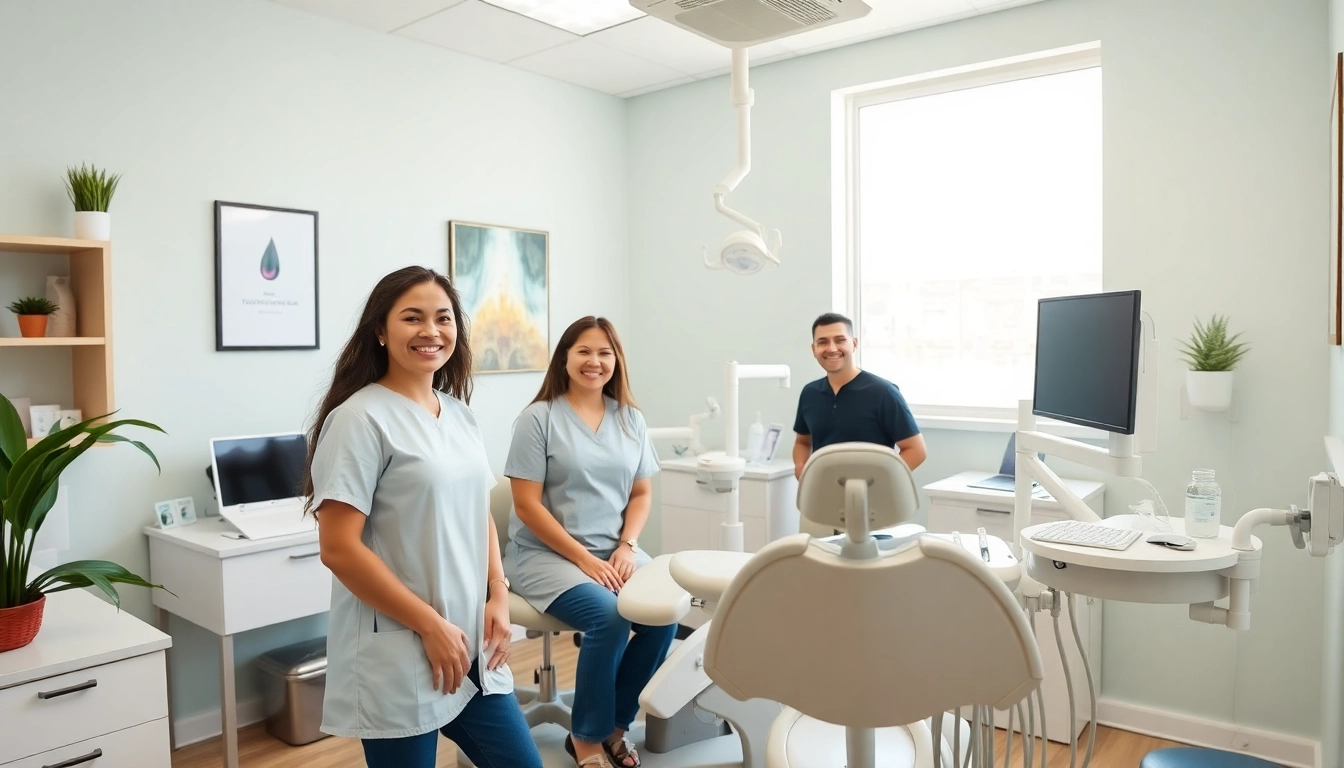Understanding Drug Addiction and Its Impact on Well-Being
Drug addiction remains a critical health challenge worldwide and particularly in Ukraine, where the increasing prevalence demands effective treatment solutions. The profound effects of addiction extend beyond physical health, infiltrating mental well-being, social relationships, and economic stability. Addressing this complex issue requires comprehensive strategies that encompass medical, psychological, and social interventions.
What is Treatment for Drug Addiction? Definitions and Key Concepts
Treatment for drug addiction, or treatment for drug addiction, involves a multifaceted approach designed to help individuals cease drug use, manage withdrawal symptoms, recover psychological health, and rebuild a productive life. Core components include detoxification, behavioral therapy, medication-assisted treatment (MAT), psychosocial support, and ongoing relapse prevention. The goal is not merely abstinence but achieving long-term recovery and social reintegration.
Statistics and Trends of Drug Dependency in Ukraine
Ukraine faces alarming statistics, with approximately 1.5 million citizens affected by substance use disorders. The annual increase of 8-10% signifies a rapid escalation, exacerbated by socio-economic stresses and the availability of illicit substances. Notably, the age of initiation continues to decline, with growing numbers of adolescents and young adults succumbing to addiction. The high growth rate positions Ukraine among countries with some of the most significant drug abuse issues globally, emphasizing the urgent need for effective treatment centers and preventive measures.
Consequences of Unaddressed Addiction on Health and Society
Failure to treat drug dependence results in severe health complications, including organ damage, mental health disorders, increased risk of infectious diseases, and overdose fatalities. Societally, addiction correlates with increased crime rates, family disintegration, homelessness, and economic burden due to healthcare costs and lost productivity. Therefore, early intervention and comprehensive treatment are essential for mitigating these adverse outcomes and fostering societal stability.
Recognizing Early Signs and Symptoms of Drug Dependence
Behavioral and Psychological Indicators
Early detection of drug addiction hinges on recognizing behavioral and psychological signs. These may include drastic mood swings, lethargy, neglect of responsibilities, social withdrawal, and secretive behavior. Psychologically, individuals might exhibit anxiety, paranoia, agitation, or depression. They often develop a decline in personal hygiene, changes in sleep patterns, and reckless decision-making. Identifying these early markers allows prompt intervention, crucial for successful treatment outcomes.
Physical and External Signs
Physically, addiction manifests through dilated or constricted pupils, track marks, unexplained weight changes, and malnutrition. Other external signs include bloodshot eyes, unusual body odors, or needle scars. Behavioral cues, such as frequent absences or financial difficulties, coupled with physical signs, create a compelling case for seeking professional evaluation.
Importance of Early Detection for Effective Intervention
Early diagnosis significantly enhances the prognosis by enabling timely commencement of treatment. It prevents the escalation of dependency, reduces the severity of withdrawal symptoms, and increases the likelihood of sustained recovery. Educational awareness campaigns and training for family members and educators can strengthen early detection efforts, ultimately saving lives and reducing social costs.
Stages of Effective Treatment for Drug Addiction in Kyiv
Initial Detoxification and Stabilization Processes
The first and most critical stage in treating drug addiction involves detoxification — the process of removing toxic substances from the body. In Kyiv’s reputable centers like «Troytsky», detoxification is performed under medical supervision, employing both classical and ultrarapid methods (UБОД). Detox aims to alleviate withdrawal symptoms, which can range from mild discomfort to life-threatening complications. Proper management through medication, hydration, and nutritional support ensures patient safety and comfort.
During detoxification, the patient’s physical state is closely monitored through continuous assessment. Pharmacological support utilizes medications such as anticonvulsants, sedatives, and vitamins, tailored to individual needs. This stage is also pivotal for motivation—patients are introduced to the recovery process, and their readiness for subsequent therapy is evaluated.
Psychological and Interpersonal Support Methods
Recognizing that addiction is not solely a physical affliction, modern treatments integrate psychological support from the outset. The «Troytsky» center excels in utilizing advanced approaches like psychological intervention, family therapy, and motivational interviewing to address mental dependence and behavioral patterns. One notable method is the «12 steps» program, rooted in community and spiritual principles, whichhas proven effective worldwide. This peer-supported model fosters a sense of shared purpose, accountability, and hope among recovering addicts.
Long-term Rehabilitative Strategies and Relapse Prevention
Long-term rehabilitation is vital for lasting recovery. In Kyiv, centers like «Troytsky» develop personalized programs including individual therapy, group sessions, vocational training, and social skills development. Embedding patients into a supportive community reduces relapse risks, while relapse prevention strategies involve cognitive-behavioral therapy (CBT), mindfulness practices, and ongoing peer support groups. The holistic approach ensures the development of resilience against triggers, environmental stressors, and psychological vulnerabilities.
Innovative and Proven Methods of Treatment at «Troytsky»
Medication-Assisted and Psychotherapeutic Techniques
The «Troytsky» center employs a combination of medication-assisted treatments (MAT) and psychotherapy to address both the biological and psychological facets of addiction. MAT may include short-term use of antidepressants, anti-craving medications, or replacement therapy, such as methadone for opioid dependence—applied meticulously under medical supervision. Simultaneously, evidence-based psychotherapies—cognitive-behavioral therapy, gestalt therapy, and art therapy—are integrated to modify destructive thought patterns and enhance emotional health.
Program «12 Steps» and Community Support Systems
The «12 steps» program, rooted in spiritual and communal principles, serves as a cornerstone of long-term recovery. It involves guiding individuals through stages of acknowledgment, surrender, and active participation in peer support groups. This model promotes accountability, provides ongoing motivation, and helps individuals rebuild trust and social bonds, crucial for preventing relapse. The Interpersonal and community-based approach fosters a sense of belonging, which is vital for sustained sobriety.
Integrated Approaches for Sustainable Recovery
Kyiv’s treatment facilities champion an integrated approach combining pharmacology, psychotherapy, social rehabilitation, and family involvement. This synergy addresses the multidimensional nature of addiction, ensuring a comprehensive recovery plan. Innovations such as neurofeedback, motivational enhancement therapy, and continuous follow-up strengthen treatment efficacy. The objective is to restore individuals not only physically but also socially and psychologically, enabling them to lead productive, substance-free lives.
Financial Aspects and Confidentiality in Drug Addiction Treatment
Pricing Models and Flexible Payment Options
At «Troytsky», transparency in pricing is maintained, with costs tailored to each patient’s specific needs and program duration. Various packages are offered; some include initial detox, outpatient therapy, inpatient rehabilitation, or extended social support. The center provides flexible payment terms, installment plans, and assistance with insurance reimbursement where applicable, making treatment accessible to a broad demographic.
Guarantees of Private and Anonymity for Patients
Confidentiality is a fundamental principle at «Troytsky». Patients’ personal data and treatment details are protected by strict privacy protocols, aligning with Ukrainian legislation and international standards. No information is shared without consent, and anonymity in group sessions ensures an environment of trust and safety. This confidentiality fosters greater willingness to seek help, especially in societies where stigma still exists.
How «Troytsky» Ensures Confidential Support and Respect
The center’s staff is committed to respectful communication, cultural sensitivity, and discretion. Every patient’s journey is individualized, with trust reinforced through secure facilities and private consultations. Free initial assessments and counseling sessions allow individuals to explore treatment options confidently, reinforcing the center’s reputation as a safe haven for those seeking a fresh start.




